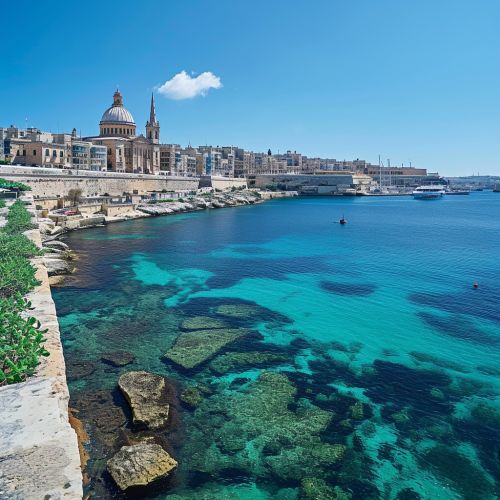Valletta
Geography
Valletta, the capital city of Malta, is located in the South Eastern Region of the main island. The city is built on the Sciberras Peninsula that juts out into Malta's two deep natural harbours, Marsamxett Harbour and the Grand Harbour. The city's terrain is characterized by a strong fortification ridge affording a natural, eastward-facing harbour on one side, and a potentially militarily defensible hill crest on the other.


History
Valletta's history dates back to the times of the Knights Hospitaller. The city's construction was commissioned in 1566 by Grand Master Jean Parisot de la Valette, after whom the city is named. Valletta was designed by the military engineer Francesco Laparelli and later completed by his assistant, Gerolamo Cassar. The city was intended to serve as a refuge for soldiers returning from the Crusades.
Architecture
Valletta's architecture reflects its rich history and the various cultures that have influenced the city. The city is renowned for its Baroque architecture, with elements of Mannerist, Neo-Classical and Modern architecture in selected areas. The city's design, characterized by a grid street plan, is attributed to Laparelli. The cityscape is a collection of narrow streets adorned with churches, palaces, and forts, all of which have been preserved thanks to the city's status as a UNESCO World Heritage Site.
Culture
Valletta is a cultural hub, hosting numerous cultural events every year. The city is home to the National Museum of Archaeology, the Manoel Theatre, and St. John's Co-Cathedral, among other cultural landmarks. Valletta was named European Capital of Culture in 2018, a testament to its rich cultural heritage.
Economy
Valletta's economy is largely based on the service sector, with tourism playing a significant role. The city's historic sites, coupled with its status as a UNESCO World Heritage Site, make it a popular tourist destination. Other significant sectors include the maritime industry, given the city's strategic location in the Mediterranean Sea, and the financial services sector.
